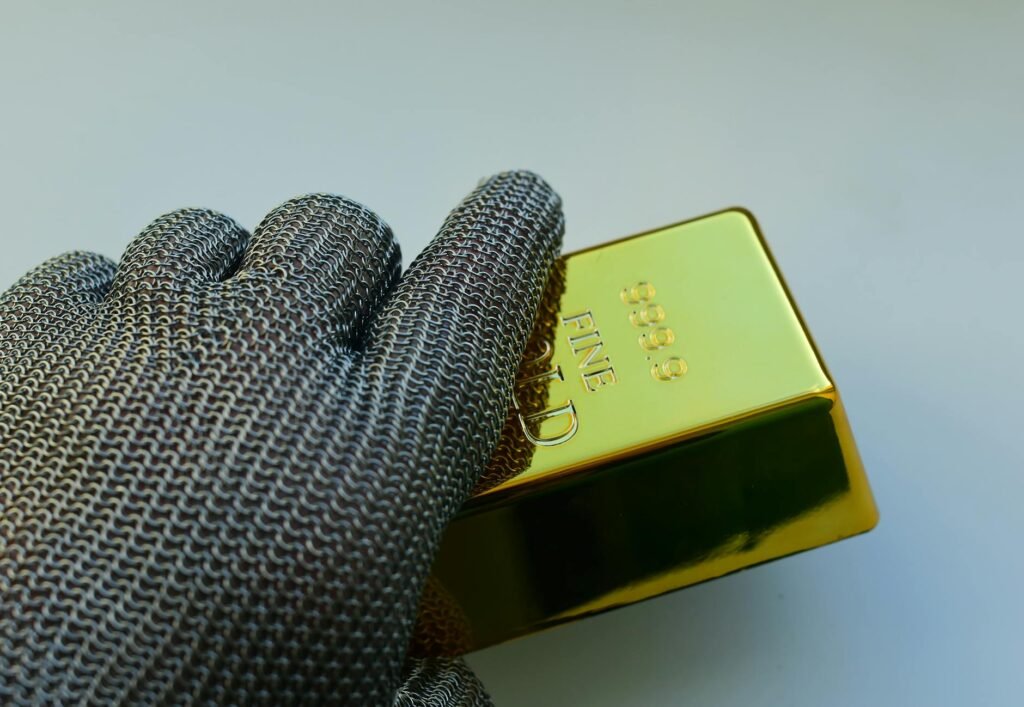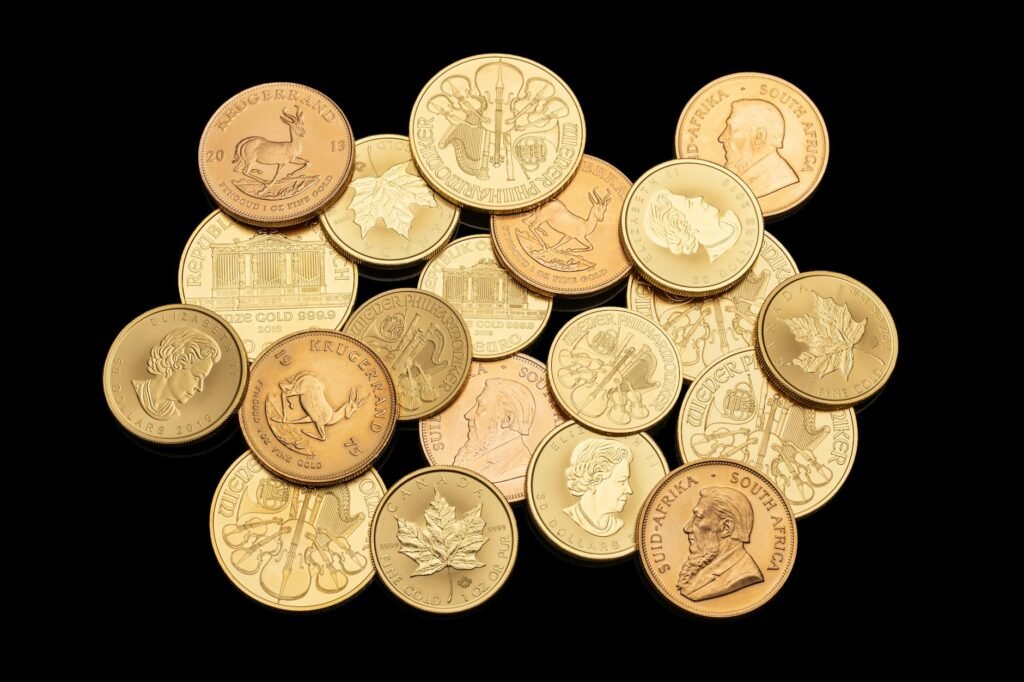Gold Recession Investment: Essential Safe Haven Shield

Gold Recession Investment: A Guide to Safe Haven Assets
Gold recession investment may not always be the most exhilarating topic, but its relevance becomes undeniable during economic downturns. With economies cyclically fluctuating, investors constantly seek refuge for their assets. Historically, gold has been synonymous with security, earning its reputation as a reliable safe haven asset. Understanding the dynamics behind this can provide clarity on how you can potentially safeguard your wealth in turbulent times.
Why Gold is Considered a Safe Haven Asset
The concept of a “safe haven asset” is pivotal during economic instability. These are assets that maintain or increase their value when markets are under duress. Gold excels in this category for several reasons:
-
Intrinsic Value and Scarcity: Unlike fiat currencies, which can be printed without physical bounds, gold’s supply is finite. Its rarity contributes to its intrinsic value, which remains largely unaffected by monetary policies or governmental decisions, making it a solid choice during a recession.
-
Historical Precedent: Gold has been used as a form of currency and a store of value for thousands of years. Its consistent demand across centuries underscores its reliability. Throughout history, gold prices have often risen during economic downturns, acting as a hedge against inflation and currency devaluation.
-
Investor Psychology: During periods of financial uncertainty, investors tend to gravitate toward assets that offer stability. The psychological comfort associated with gold cannot be overstated; it’s a tangible asset that people trust. This trust underpins its status as a valuable safe haven.
How Gold Protects Your Wealth in a Recession
Exploring how gold protects wealth during a recession involves understanding market behavior and investor strategy:
-
Diversification: One of the core tenets of investment strategy is diversification. Incorporating gold into your portfolio reduces risk because its performance often inversely correlates with other asset classes like stocks and bonds. When markets become volatile, gold’s stabilizing effect can preserve overall portfolio value.
-
Inflation Hedge: Recessions can lead to inflationary pressures. Gold, being a finite resource, often retains its purchasing power even as the value of currency erodes. This makes it an effective hedge against inflation, protecting your wealth over time.
-
Liquidity and Portability: Gold’s liquidity, or its ability to be easily bought or sold without affecting its market price, is another advantage. Its portability adds a layer of convenience, allowing for global transactions, an added advantage in times of upheaval.
Are Precious Metals Truly Recession-Proof?

While gold is the stalwart safe haven, other precious metals like silver also play critical roles. The diverse applications of silver in industries like electronics and solar energy contribute to its demand. Although it doesn’t always mirror gold’s performance, silver is another resilient asset that can strengthen an investment portfolio during uncertain financial times.
Strategies for Investing in Gold
For those contemplating a gold recession investment, various options are available:
-
Physical Gold: Purchasing gold bars or coins offers direct ownership. This physical form of gold is tangible and typically free from the impacts of digital or market fluctuations. However, storage and insurance may be considerations.
-
Gold ETFs: Exchange-traded funds backed by gold provide a way to invest in gold without the need to hold it physically. They’re flexible, easy to trade, and eliminate storage issues.
-
Gold Mining Stocks: Investing in companies that mine gold is another route. These stocks can offer high returns, though they carry more risk due to operational factors affecting the mining sector.
Conclusion
Navigating economic recessions requires a strategic approach to safeguarding assets. As a well-established safe haven asset, gold provides both security and stability, qualities that become invaluable during economic turmoil. Its enduring value and the psychological assurance it provides make it a wise choice for investors looking to mitigate risks. By incorporating gold alongside other precious metals like silver into your investment strategy, you can better shield your wealth from the unpredictable tides of recession.# Gold Recession Investment: Why It’s a Safe Haven Asset
Gold recession investment strategies have increasingly become a subject of discussion among financial experts and investors alike. In times of economic uncertainty, such as during a recession, gold is often viewed as a secure place to park capital. Its reputation as a safe haven can be attributed to several key factors.
The Historic Role of Gold as a Safe Haven Asset
Gold’s historical significance as a safe haven asset cannot be overstated. For centuries, it has been perceived as a store of value, serving as a hedge against inflation and currency devaluation. Unlike paper currency, gold does not corrode, which means it maintains its intrinsic value over time.
During periods of economic downturn, investors flock to gold to protect their wealth. This is primarily because gold is not linked to the performance of stocks or bonds. In fact, gold prices often rise when traditional markets fall, cushioning the blow of financial losses elsewhere.
Why Gold Thrives During Economic Uncertainty
-
Limited Supply and High Demand:
The limited supply of gold makes it less susceptible to inflationary pressures. Furthermore, global demand for gold, whether for investment purposes, jewelry, or industrial use, ensures that it remains highly sought after. -
Portfolio Diversification:
Incorporating gold into an investment portfolio can reduce overall risk. Unlike stocks, which can be volatile, gold provides stability. This diversification is critical during recessions when market unpredictability is at its peak. -
Currency Hedge:
Gold acts as a hedge against currency devaluation. When the value of a currency falls, as often happens during a recession, gold typically retains its dollar value or may even increase, offering protection against economic instability.
Recession-Proof Precious Metals: Gold vs. Silver
When discussing recession-proof precious metals, both gold and silver often come into play. While both are considered safe investments during economic turmoil, they serve different roles.
-
Gold: Known for its stability, gold is frequently the primary choice for investors seeking a safe harbor during a recession. Its price is less volatile compared to silver, making it a reliable choice.
-
Silver: Although more volatile, silver can offer substantial returns. It often lags behind gold in price movement but can close the gap quickly. For risk-tolerant investors, silver provides a unique opportunity to capitalize on


Leave a Reply